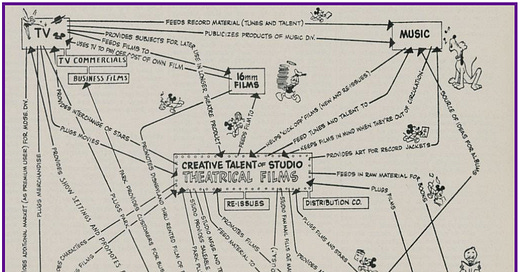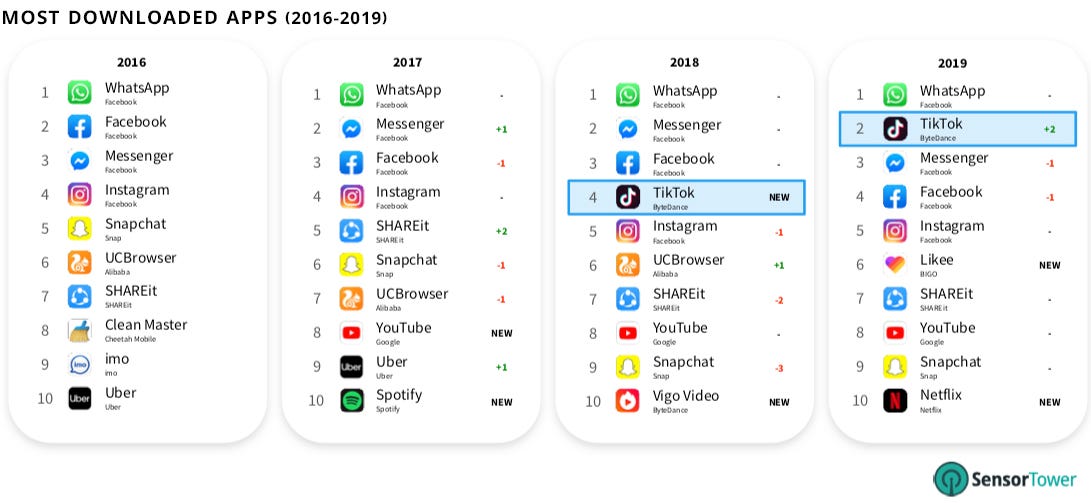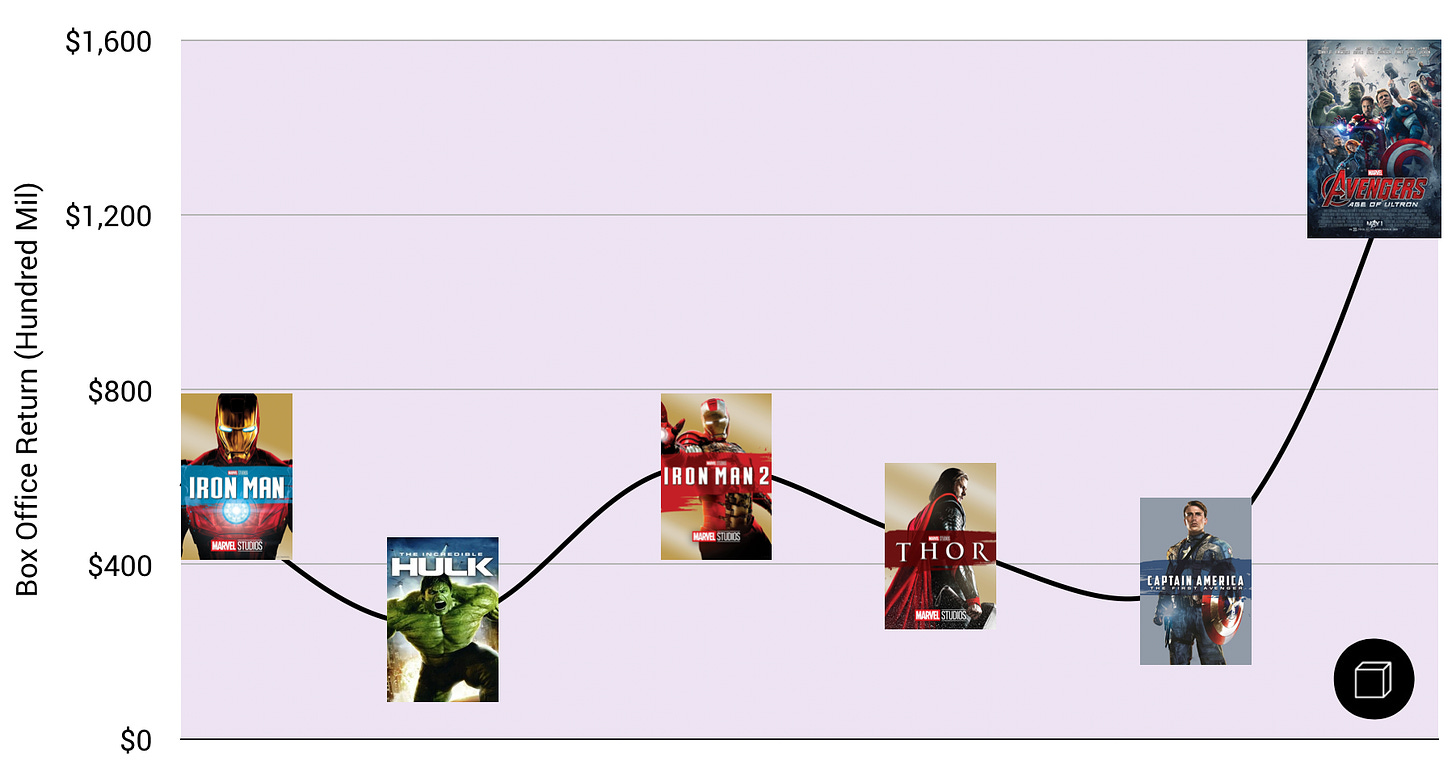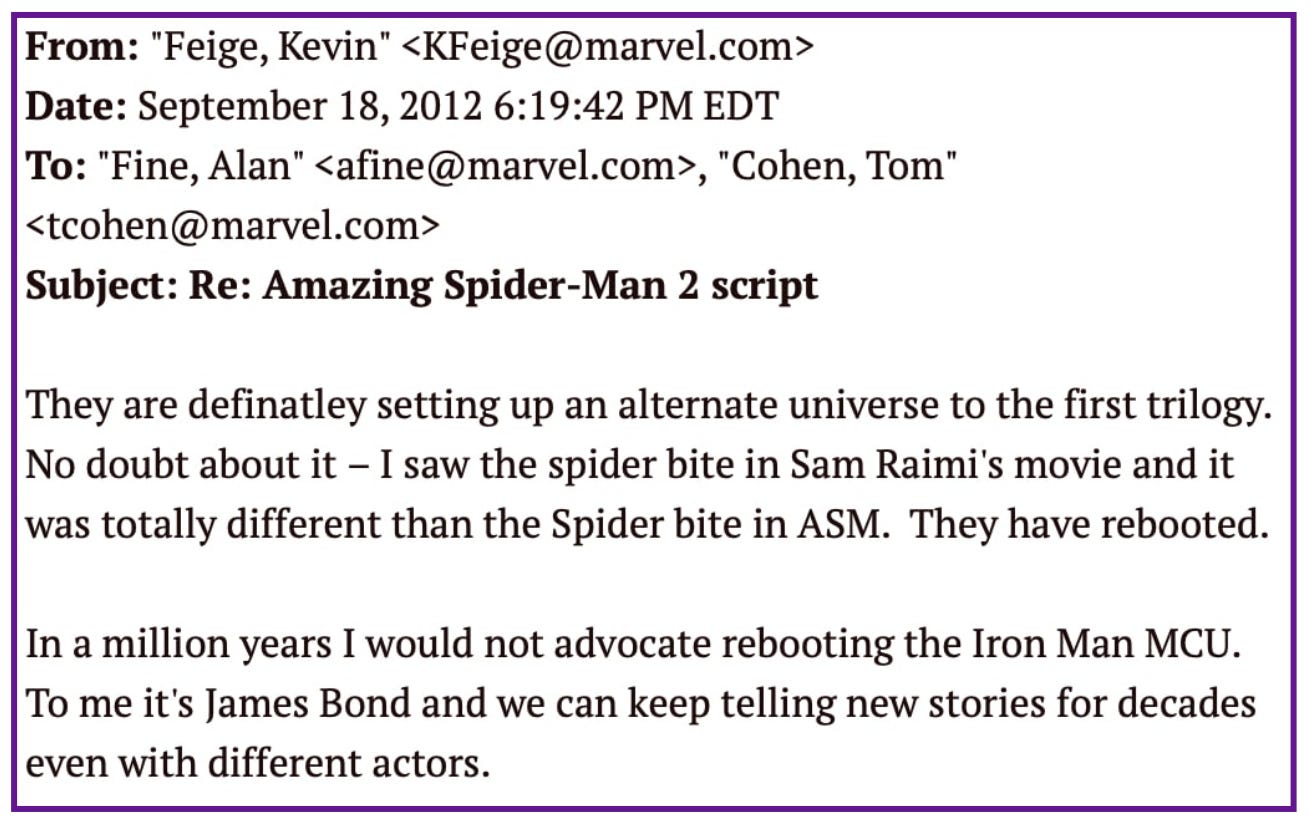SaaS Pricing is hard. PricingSaaS is your cheat code.
Monitor competitors, track real-time benchmarks, discover new strategies, and more.
At this very moment, 4 of the top 11 spots in box-office history are held by The Avengers.
This type of dominance in any industry is rare. The only comparison I can think of is Facebook’s dominance in the mobile app store with WhatsApp, Facebook, Messenger and Instagram all landing in the top 5 downloaded apps worldwide every year since 2016.
Similar to Facebook being the dominant social media company of our time, their box-office dominance positions Disney as the dominant story-telling company of our time, and The Avengers, as their most successful product.
While it’s easy to look at The Avengers as a simple example of superhero movies dominating the box office, the product’s success goes deeper than that.
By unifying key characters across their Cinematic Universe, Marvel created a product that dominated the existing business model, has thrived in the current transmedia storytelling environment and is positioned for success in the immersive media experiences of the future.
Want fresh packaging case studies delivered straight to your inbox? 📩
A Tentpole among Tentpoles
Even if you haven’t heard the phrase before, you’re likely familiar with the concept of a tentpole movie. Scott Myers, screenwriter, and founder of The Blacklist, defines Tentpole movies as follows:
"Big, brash, expensive movies around which a studio can build their release schedule. Typically slotted in the two big box office seasons — November through December (holidays) and May through July (summer) — tentpole movies are often based upon pre-existing literary material (e.g., Harry Potter, Lord of the Rings, Iron Man, Spiderman) or pre-existing original movies (e.g., Star Wars, Indiana Jones). The reason they’re called “tentpole” movies is that their primary function is to hold up (do well) at the box office, typically raking a lot of money in a short time, and by doing so balance out the rest of a studio’s slate of movie releases."
The Avengers is more like a tentpole among tentpoles. A key factor to the success of The Avengers is the success and momentum Marvel built with individual titles leading up to the release.
Specifically, they released Iron Man and The Incredible Hulk in 2008, Iron Man 2 in 2010, and both Thor and Captain America in 2011, leading to the release of The Avengers in 2012. Each of these films was a bonafide tentpole in itself, with the worst-performing title being The Incredible Hulk, which still made over $250M at the box office worldwide.
By unifying these characters into one story, Marvel was able to pull fans of each title into one movie event, shattering previous box-office numbers.
While it may seem like the success of The Avengers was inevitable, it’s important to note that DC, Marvel’s longtime rival in the comic space, has not had the same success uniting their titles. A major reason comes down to strategy, which leads to a crucial ingredient of the success of The Avengers and Marvel, executive Kevin Feige.
The Marvel Cinematic Universe
There are several reasons The Avengers was successful, but arguably the most important is the underlying focus behind crafting this world of superheroes. To maintain this focus, Marvel dedicated a single executive to oversee the entire Cinematic Universe.
Kevin Feige, who was recently in talks to replace Bob Iger as Disney’s CEO, has been with Marvel since 2000 and is the mastermind behind The Avengers and the rest of Marvel’s titles over the past decade-plus.
As a huge fan of the Marvel comic book canon, Feige set out to create a cinematic universe that could continuously build off itself. His vision is clear in a leaked email from 2012, where he comments on DC’s Spiderman remake, starkly disagreeing with the decision to change Peter Parker’s origin story.
His aversion to setting up an alternate storyline tells you everything you need to know about Feige’s strategy for Marvel. By keeping all stories within a consistent universe, the Marvel team has been able to continue building off the world they’ve created, maintaining temporal fluidity between narratives.
Much like Star Wars, Feige and team have been able to develop both sequels and prequels that can slot in before, after or in between previous entries into the Marvel canon. Unlike Star Wars, however, which is relatively self-contained, the Marvel Cinematic Universe is ripe with opportunities for cross-promotion.
Viewers can start with one hero, be it Ironman or Thor, and get sucked into the rest of the characters as they explore the storyline for their personal favorite. This ability to cross-promote within the cinematic universe creates native opportunities to expand engagement as new viewers dive deeper into the Marvel canon, giving them a huge advantage over a conventional single-franchise sequel strategy, where viewers don’t have anything to explore until the next entry.
The strength of this strategy has played out at the box office. Following the original Avengers, Marvel has released 17 installments, each pulling in a monster haul, with the compound effect of new characters and storylines continuously driving box office figures up and to the right.
The fun part, as mentioned earlier, is the titles aren’t released in chronological order. The viewing order of the Marvel Cinematic Universe is actually a hotly debated topic, and the Marvel team has embraced this, adding “Easter Eggs” within each film that lay clues for what’s to come. According to Feige, some Easter Eggs tie back to 10 movies before and are only noticeable if you’ve been paying close attention.
This level of detail has spawned a cottage industry on YouTube, with channels like Emergency Awesome (3M+ subscribers), New Rockstars (2.5M subscribers) and Mr. Sunday Movies (1M+ subscribers) seeking Easter Eggs and circulating fan theories in anticipation of the next Marvel release. This creates a feedback loop where viewers end up rewatching previous titles in search of Easter Eggs so they can contribute to the discourse.
Marvel's willingness to play into super-fan obsessions has helped transform the Marvel Cinematic Universe into a transmedia experience beyond cinema, allowing the franchise to take advantage of platforms like YouTube and social media to sustain interest and build momentum outside of the theatre. This form of digital engagement, however, is only the beginning.
The Future: Immersive Worlds
In a recent interview with Stratchery’s Ben Thompson, Eugene Wei (formerly of Amazon, Hulu, Oculus) discussed Disney’s storytelling strategy:
"Disney has always had an interesting model in that they try to get a higher ROI on the content that they choose to spend on by focusing on very particular types of stories. I call these the difference between finite and infinite stories.”
He continues, referencing a mythic quote from Walt Disney himself:
"There’s this canonical story that some people have said is a myth, that Walt Disney told everyone in the company to remake all of his stories every 10 years.”
Whether Disney actually said this or not, it fits well with his legendary drawing that highlights his web of business lines and the opportunity to cross-promote properties across different product types.
As digital storytelling continues to evolve, the opportunities will expand well beyond this map, and unifying the Cinematic Universe has positioned the Marvel team well for such experiences.
To start, this year Marvel is planning to release two television series that are tied into the cinematic universe and will impact the overarching storylines. To maintain consistency, the same actors will be portraying their characters from the movies.
Unifying narratives across TV and film is innovative itself, but still only scratches the surface of the full-on immersion Marvel can achieve in their biggest medium of opportunity: gaming.
In a recent piece titled The Most Important Media Businesses of the (Past &) Future, media strategist Matthew Ball states:
“One of the biggest storytelling “lessons” in the 20th and early 21st century was that audiences have an unending desire for “more” of the stories they already love. And the Internet has enabled this to an unprecedented degree."
No medium has served this unending desire better than video-games. Games like World of Warcraft, Minecraft and Grand Theft Auto allow players to disappear into a digital universe for hours charting their own adventure. Further, gaming experiences will only be heightened as technologies like virtual reality continue to evolve alongside advances in gameplay.
While Marvel hasn’t seen success in gaming yet, they’re starting to take it seriously. This fall, partnering with a third-party publisher, they’re releasing the first game based on Marvel IP in over a decade. By maintaining control of all narrative, character and branding decisions, Marvel can weave the gaming experience into the broader narratives of the cinematic universe.
Though new to gaming, Marvel and Disney are uniquely qualified to thrive given their experience building worlds in real life. In his piece, 7 Reasons why Video Gaming Will Take Over, Ball considers Disney’s parks division the “closest comp” to gaming in traditional media.
By leveraging their combination of real-life world-building experience, and the unified narratives of the Marvel Cinematic Universe, it’s easy to see a future where super-fans join the characters in their digital world rather than simply watching them on the screen.
Here’s Matthew Ball again, on how this might look:
"Stories will be more than a movie franchise plus a game that compliments. It will be a persistent, constantly updated, and living virtual world. Consumers won’t buy a $60 copy of Avengers: 5, for example, but access to an unending and real Marvel Universe. While this universe will offer the opportunity to visit key locations like Wakanda and perform game-like tasks such as building Tony Stark’s fleet of “Iron Legion” suits, what will truly bring it to life is the moment when you run into a superhero, join them in a live mission, and only later find out why it happened and where it led to. And as with all modern games, it will keep growing with new stories, characters, and adventures added all the time."
This future state, again, is all made possible by unifying the Marvel Cinematic Universe in the first place.
While it’s easy to view The Avengers simply as a tentpole movie franchise, the opportunities created by bringing their heroes into the same world have only just begun. It will be fascinating to watch how new mediums help The Avengers stories further evolve, becoming truly infinite.
Enjoying Good Better Best?
If you enjoyed this post, I’d love it if you hit the “like” button, that way I’ll know which posts are resonating the most!
If you have thoughts or feedback, I’d love to hear it!
Lastly, if you’re enjoying Good Better Best and have friends or colleagues who would enjoy a weekly packaging case study, I’d be thrilled if you shared this with them!








